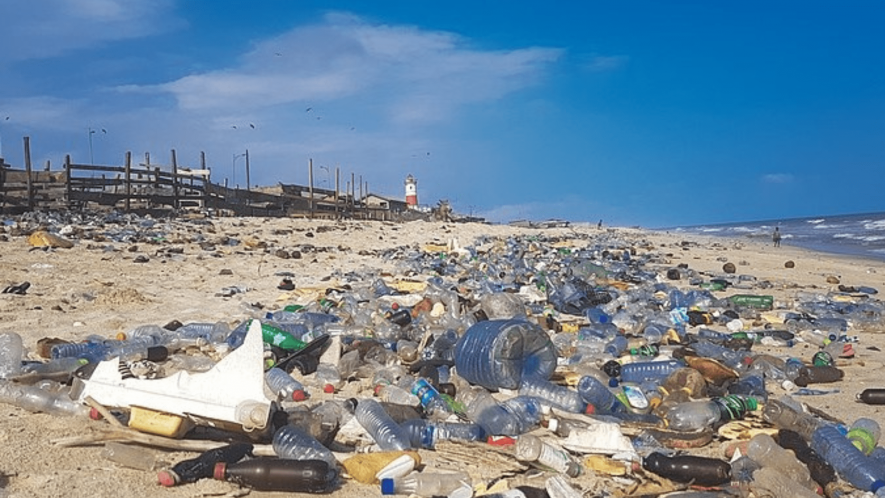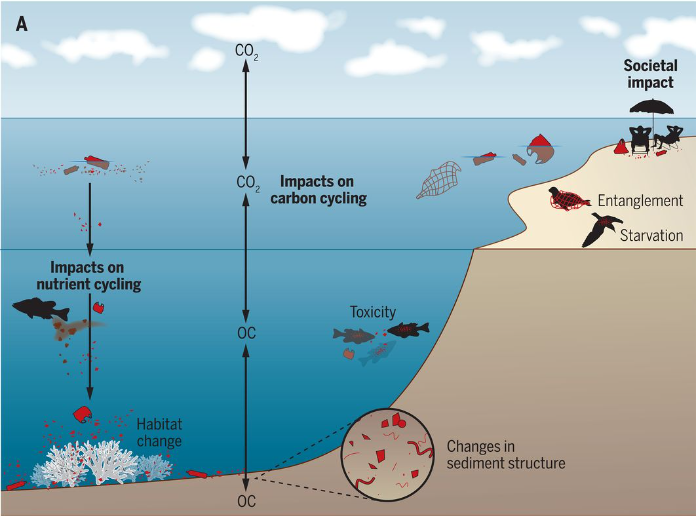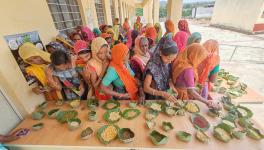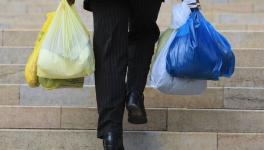50th World Environment Day: End Plastic Pollution, but are we Doing Enough?

Image Courtesy: Wikimedia Commons
World Environment Day, led by United Nations Environment Programme (UNEP), is being observed in the West African nation of Côte D’Ivoire on Monday this year with the theme #BeatPlasticPollution, ‘Ecosystem Restoration’.
The day is observed annually on June 5 since 1973 after the 1972 United Nations Conference on the Human Environment in Stockholm made the environment a major issue. It has witnessed remarkable achievements and inspiring stories of environmental stewardship with individuals and organisations making a positive impact and shaping up a more sustainable future from reforestation to clean-up drives.
But is it sufficient? Ecosystem restoration is a paradigm shift from the past involving systemic changes. Going by the current global socio, political and economic environment, not much is expected to come out.
Regular meetings, conferences and gatherings of schoolchildren worldwide are meaningless if the crises— climate change, biodiversity loss, pollution and deforestation are not dealt with systematically with collaborative action by people and nations.
Plastic, once celebrated as a revolutionary material, has become a global menace threatening our planet and well-being. Production has skyrocketed reaching 348 million tonnes (MT) in 2017 with over 400 MT produced annually.
Shockingly, half of the plastic produced is for single-use purposes, leading to widespread waste and pollution. Microplastics have infiltrated our food chain, water sources, and even air, posing a grave threat to the environment and human health. The seafloor and terrestrial soils have become major accumulation zones for plastic pollution.

Source: SCIENCE, VOLUME. 373, NO.6550
Half-hearted steps will not help
The ministry of environment, forest and climate change (MoEFCC) has adopted a strategy to combat plastic pollution through a ban on single-use plastic items and extended producer responsibility (EPR) for plastic packaging. The government has encouraged eco-alternative innovation through initiatives like the India Plastic Challenge Hackathon. Two innovative solutions for eco-alternatives were awarded during the Hackathon—a rigid packaging material made from rice stubble and a flexible packaging film made from seaweed, which can be used for wrapping and carry bag use.
Maharashtra and Punjab actively promote eco-alternatives to ban single-use plastic items as part of the Lifestyle for Environment (LiFE) Mission. Haryana, Chandigarh and Rajasthan have established ‘Bartan Bhandars’ at the village panchayat level, encouraging the use of reusable cutlery instead of disposable options. Self-help groups have also been mobilised in these states to produce cloth bags, and some marketplaces have installed cloth bag vending machines.
However, a Centre for Science and Environment (CSE) report highlights shortcomings in the EPR policy such as a lack of clarity in implementation and the inability to verify recycled content claims. The CSE emphasises the need to consider the entire lifecycle of plastic to address pollution effectively.
Despite positive steps, addressing these challenges and ensuring transparency and accountability in waste generation data is crucial. Technological solutions are needed to verify the use of recycled materials. By doing so, India can make significant progress in tackling plastic pollution and creating a cleaner environment.
Steps taken by other nations
Rwanda implemented a nationwide ban on plastic bags in 2008, leading to a cleaner and more sustainable environment. Kenya implemented one of the strictest plastic bag bans globally, significantly reducing their usage and litter. New Zealand has announced a plan to phase out single-use plastics by 2025, aiming for a complete ban. The UK has implemented measures such as banning microbeads and charging for plastic bags with further plans to ban single-use plastic straws, stirrers and cotton buds. These efforts demonstrate a commitment to combat plastic pollution and promote environmental sustainability.
Steps that should be taken asap
Given India’s situation and plastic pollution in other nations, what can we do to beat it?
-
Reduce single-use plastic by shifting to reusable alternatives like cloth bags, stainless steel water bottles, and bamboo or metal straws. Carry them all the time, in case, you want to buy something.
-
Extend the provisions of EPR from source to destination—meaning that places where plastic reaches and do not produce at all should be compensated.
-
Choose products with minimal or no plastic packaging. Look for alternatives that use eco-friendly materials or packaging made from recycled materials.
-
Encourage and support businesses that prioritise sustainable practices and offer plastic-free alternatives.
-
Educate anyone and everyone around you about the harmful impacts of plastic pollution and the importance of reducing plastic consumption.
Reflecting on the World Environment Day theme makes it clear that our collective efforts to combat plastic pollution have the power to shape a brighter and cleaner future. But the journey does not end here. As the world bids farewell to another World Environment Day, the world should continue to raise its voice, inspire change and forge partnerships that transcend borders and generations.
The world should dare to dream of a future where oceans sparkle with pristine beauty, wildlife thrives without the threat of entanglement and where every breath is free from the toxic burden of microplastics. On World Environment Day, the world should pledge an unwavering commitment to end plastic pollution.
Tikender Singh Panwar is the former deputy mayor of Shimla.
Shiney Devarapalli is a project intern at the National Institute of Urban Affairs. The views are personal.
Get the latest reports & analysis with people's perspective on Protests, movements & deep analytical videos, discussions of the current affairs in your Telegram app. Subscribe to NewsClick's Telegram channel & get Real-Time updates on stories, as they get published on our website.
























